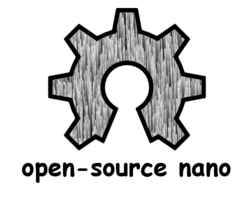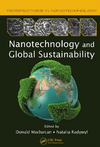J.M.Pearce (talk | contribs) m (→In the news) |
J.M.Pearce (talk | contribs) m (→In the news) |
||
| Line 16: | Line 16: | ||
== In the news == | == In the news == | ||
* Cover - [http://www.nature.com/nature/journal/v491/n7425/images/cover_nature.jpg Nature] | |||
* [http://arstechnica.com/science/2012/11/stallmans-got-company-researcher-wants-nanotech-patent-moratorium/ Stallman's got company: Researcher wants nanotech patent moratorium ] - Ars Technica | * [http://arstechnica.com/science/2012/11/stallmans-got-company-researcher-wants-nanotech-patent-moratorium/ Stallman's got company: Researcher wants nanotech patent moratorium ] - Ars Technica | ||
* [http://www.wired.co.uk/news/archive/2012-11/23/professor-seeks-nanotech-patent-moratorium Freeze on nanotechnology patents proposed to help grow the sector]- Wired UK | * [http://www.wired.co.uk/news/archive/2012-11/23/professor-seeks-nanotech-patent-moratorium Freeze on nanotechnology patents proposed to help grow the sector]- Wired UK | ||
| Line 22: | Line 23: | ||
* [http://techrights.org/2012/11/22/fox-in-the-hen-house/ Culture of Litigation Versus Business, Innovation, and Production] - Tech Rights | * [http://techrights.org/2012/11/22/fox-in-the-hen-house/ Culture of Litigation Versus Business, Innovation, and Production] - Tech Rights | ||
* [http://techrights.org/2012/11/23/uspto-and-scotus/ USPTO and SCOTUS Abducted by Corporations] - Tech Rights | * [http://techrights.org/2012/11/23/uspto-and-scotus/ USPTO and SCOTUS Abducted by Corporations] - Tech Rights | ||
* [http://techrights.org/2012/11/27/uspto-and-bsa/ Patents Roundup: Microsoft Front the BSA Promotes Software Patents, Kappos Helps the Rotten System] - Tech Rights | |||
* [http://www.frogheart.ca/?p=8548 Free the nano—stop patenting publicly funded research] - Frog Heart blog | * [http://www.frogheart.ca/?p=8548 Free the nano—stop patenting publicly funded research] - Frog Heart blog | ||
Revision as of 15:20, 28 November 2012

Despite being an extremely active area for academic research, publishing and patent applications, nanotechnology development is being hindered by current intellectual property (IP) law. Patenting of basic science and entire classes of nanotechnologies is leading to higher transaction costs, slower technical development and the removal of obvious knowledge from the public domain. This effectively hamstrings the current primal nanotechnology development, in contrast to the history of other emerging technical fields (e.g. software).
The open-source paradigm from software development provides a viable means of guiding the accelerated development of a technology. The open-source approach, drawing on the rich nonhierarchical culture of early computer programmers and hackers, allows everyone access and the right to contribute equally to a project in a participatory manner. The resulting gift economy provides not only information access for developers, but also effectively incentivises sharing of knowledge. As is demonstrated by the success of open-source software, when knowledge is freely and openly available to all, no stagnant monopolies can be created and the lower transaction costs accelerate innovation. The application of the open-source paradigm from software development can both accelerate nanotechnology innovation and improve the social return from public investment in nanotechnology research. Following an open-source approach, everyone in the nanotechnology field would be working in a community with the same access and rights to knowledge and contributing back to the community with new knowledge. In this way, the full potential of nanotechnology can be reached to drive the next industrial revolution, where matter can be manipulated as easily as software.
Open access version can be posted in May, 2013.
Publications

- Joshua M. Pearce "Make nanotechnology research open-source", Nature 491, pp. 519–521(2012).
- Usman Mushtaq and Joshua M. Pearce “Open Source Appropriate Nanotechnology ” Chapter 9 in editors Donald Maclurcan and Natalia Radywyl, Nanotechnology and Global Sustainability, CRC Press, pp. 191-213, 2012.
In the news
- Cover - Nature
- Stallman's got company: Researcher wants nanotech patent moratorium - Ars Technica
- Freeze on nanotechnology patents proposed to help grow the sector- Wired UK
- Open Nano?-Gazeta.pl (Polish)
- The Nanotechnology Patent Thicket - Mostly Physics
- Culture of Litigation Versus Business, Innovation, and Production - Tech Rights
- USPTO and SCOTUS Abducted by Corporations - Tech Rights
- Patents Roundup: Microsoft Front the BSA Promotes Software Patents, Kappos Helps the Rotten System - Tech Rights
- Free the nano—stop patenting publicly funded research - Frog Heart blog

